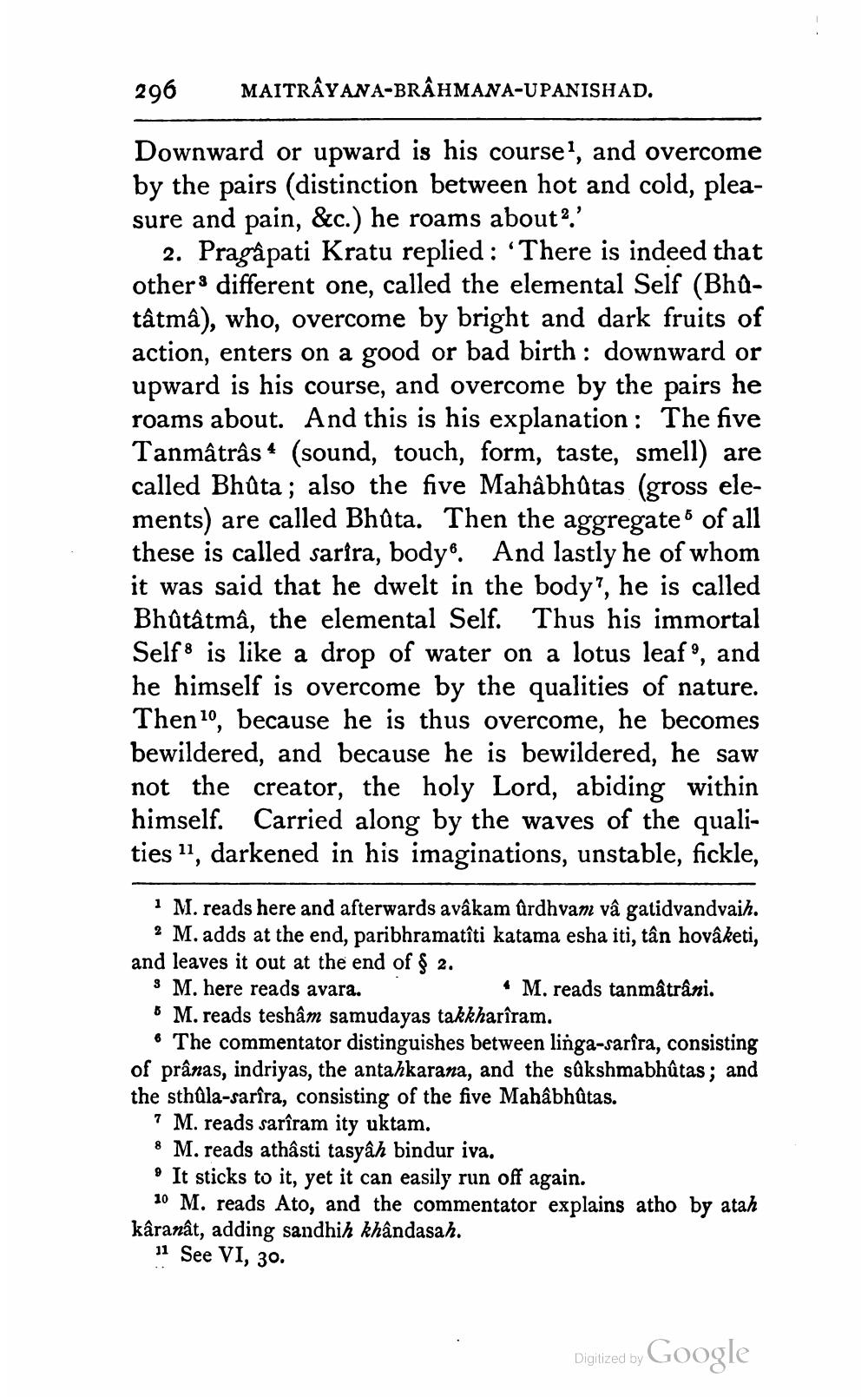________________
296
MAITRÂYANA-BRAHMANA-UPANISHAD.
Downward or upward is his course, and overcome by the pairs (distinction between hot and cold, pleasure and pain, &c.) he roams about?'
2. Pragàpati Kratu replied: 'There is indeed that others different one, called the elemental Self (Bhûtâtmâ), who, overcome by bright and dark fruits of action, enters on a good or bad birth : downward or upward is his course, and overcome by the pairs he roams about. And this is his explanation: The five Tanmâtrâs 4 (sound, touch, form, taste, smell) are called Bhůta ; also the five Mahâbhâtas (gross elements) are called Bhata. Then the aggregate of all these is called sarira, body. And lastly he of whom it was said that he dwelt in the body?, he is called Bhûtâtmâ, the elemental Self. Thus his immortal Self' is like a drop of water on a lotus leaf , and he himself is overcome by the qualities of nature. Then 10, because he is thus overcome, he becomes bewildered, and because he is bewildered, he saw not the creator, the holy Lord, abiding within himself. Carried along by the waves of the qualities 11, darkened in his imaginations, unstable, fickle,
1 M. reads here and afterwards avâkam ûrdhvam vâ gatidvandvaih.
2 M. adds at the end, paribhramatîti katama esha iti, tân hovâketi, and leaves it out at the end of $ 2. 3 M. here reads avara.
. M. reads tanmâtrâni. o M. reads teshâm samudayas takkharîram.
The commentator distinguishes between linga-sarîra, consisting of prânas, indriyas, the antahkarana, and the sûkshmabhūtas; and the sthûla-sarîra, consisting of the five Mahâbhâtas.
7 M. reads sarîram ity uktam. 8 M. reads athâsti tasyâh bindur iva.
It sticks to it, yet it can easily run off again. 10 M. reads Ato, and the commentator explains atho by atah kâranât, adding sandhih khândasah.
11 See VI, 30.
Digitized by Google




